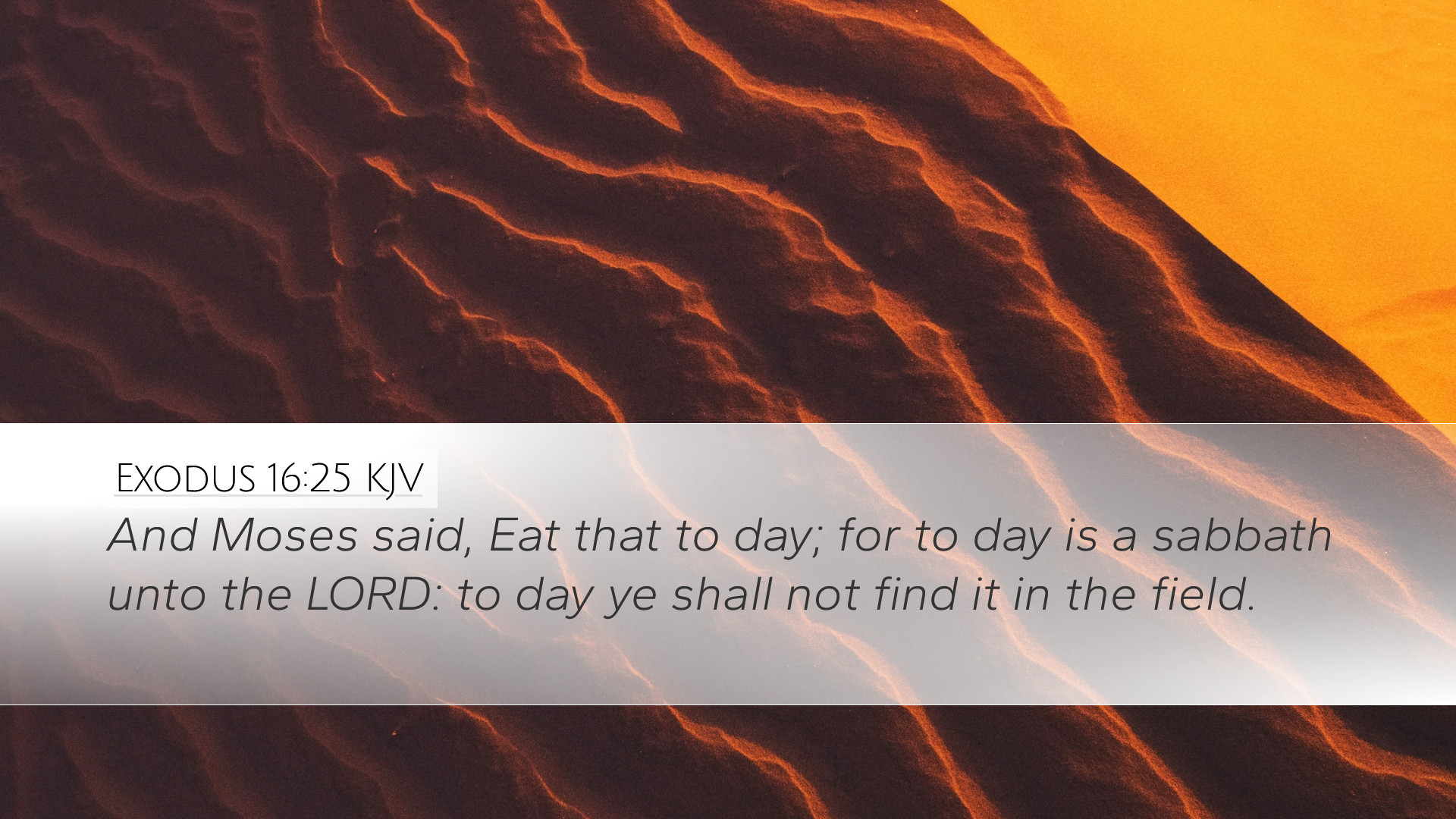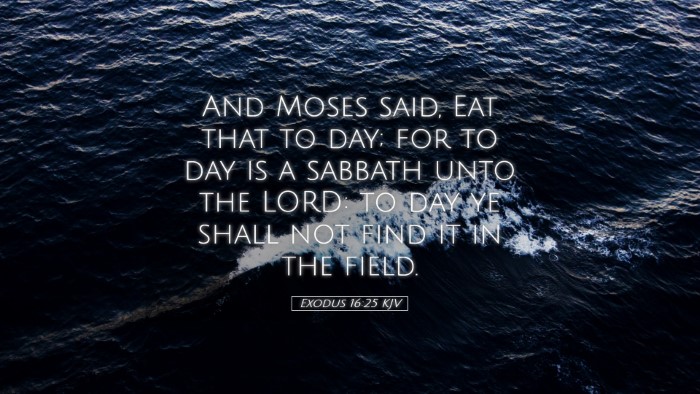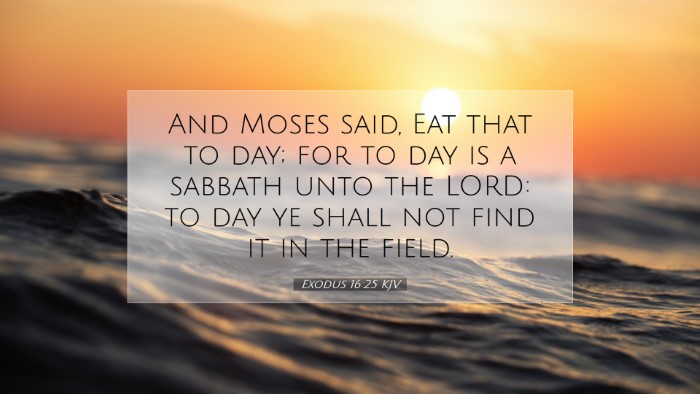Commentary on Exodus 16:25
Exodus 16:25 (NIV): "Moses said, 'Eat it today, for today is a sabbath to the Lord. Today you will not find any of it on the ground.'
Introduction
This verse takes place in the broader context of the Israelites' wilderness journey, specifically during their dependence on God for sustenance. The context of the verse provides essential insights into the spiritual and practical implications of the Sabbath, the nature of God's provision through manna, and the attitudes of the people toward God's commands.
Provision of Manna
Manna served as a miraculous provision from God, highlighting His care and sustenance for His people. As Matthew Henry notes, this provision was not just about physical sustenance but also a test of obedience and reliance on God. The manna was intended to teach the Israelites to trust in God daily, as it needed to be collected each morning.
Moreover, Albert Barnes emphasizes the significance of the manna as a sign of God’s promise to care for Israel even in the desert. The instructions surrounding its collection and consumption play a crucial role in shaping their relationship with God, reminding them of His faithfulness every time they gathered it.
The Sabbath Command
The introduction of the Sabbath in this context is pivotal. According to Adam Clarke, the Sabbath was more than a physical rest; it was a spiritual observance that called the people to remember their Creator and His works. Moses’ instruction to refrain from gathering manna on the Sabbath speaks to the rhythm of life that God designed for His people, which is intentional rest and remembrance.
This command has not only practical implications for the people but also theological ones. Matthew Henry explains that the Sabbath is a sign of the covenant relationship between God and His people, a day set apart for worship and reflection. The refusal to gather manna on this day was both a demonstration of trust in God and a recognition of His sovereignty over their needs.
Lessons on Obedience and Trust
Exodus 16:25 highlights the importance of obedience to God’s commands. The Israelites were familiar with their tendency to hoard and secure their provisions, a habit formed during years of slavery in Egypt. God's command to rest on the Sabbath and trust Him to provide reflects His desire for His people to learn reliance on Him. Albert Barnes points out that disobedience could have led to dire consequences, echoing the consequences of gathering too much manna on previous days.
This act of obedience was essential not only for their physical sustenance but shaped their spiritual lives. Adam Clarke observes that following God’s command ensured their survival, but more importantly, it fortified their faith. The Israelites were learning that God's provision is constant and present when they adhere to His teachings.
Spiritual Significance
Theologically, Exodus 16:25 points to deeper spiritual truths. The Sabbath becomes a foreshadowing of the ultimate rest found in Christ. Matthew Henry interprets the Sabbath as a type of spiritual rest that believers experience in Christ, who offers them peace and sustenance beyond physical needs. This significance carries through to the New Testament, where Jesus acknowledges Himself as the Bread of Life.
Additionally, Albert Barnes remarks on the meaning behind the term "sabbath to the Lord." It indicates that the day is dedicated to God, a key aspect that fosters a deeper communal relationship with Him. The Sabbath invites the people into a rhythm of life centered around worship, reflection, and reliance on God’s grace.
Conclusion
Exodus 16:25 provides a rich tapestry of lessons regarding obedience, the importance of the Sabbath, and the deep trust God expects from His people. By observing this command, the Israelites not only fulfilled the immediate physical need for food but also engaged deeply with their faith, learning to thrive in the wilderness through reliance on God's provision.
The insights from public domain commentaries highlight the timeless nature of these lessons for believers today. Just as the Israelites were instructed to gather manna and observe the Sabbath, modern believers are called to recognize God's ongoing provision and to find rest in Him.


